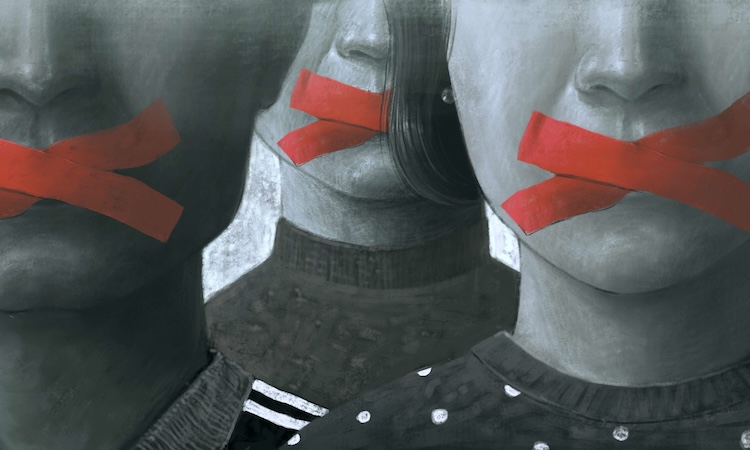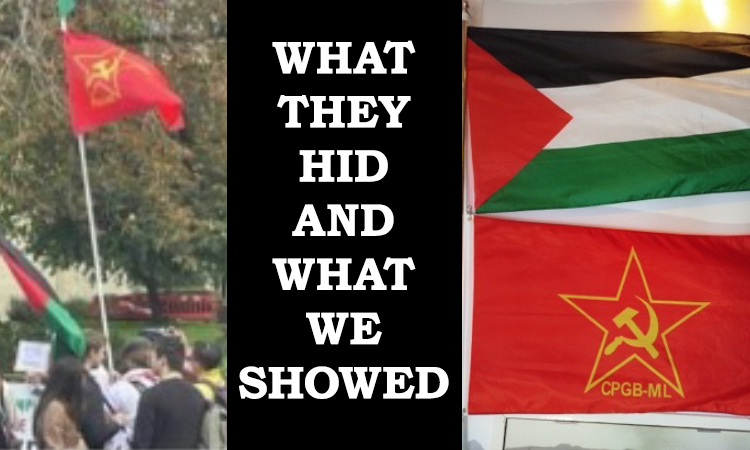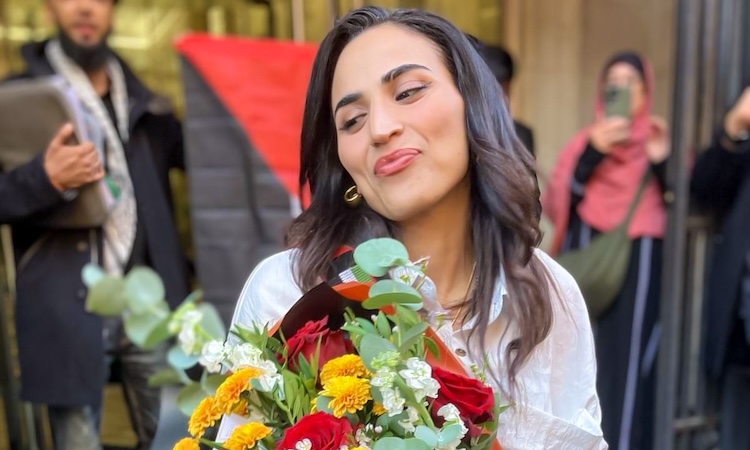Interview by Communist Initiative with Aymeric Monville, author of Julian Assange in Mortal Danger.
Read the original article in French.
*****
CI: Julian Assange was unable to appear at the latest three hearings of his case [for extradition to the USA], while the British are experiencing a massive spread of Covid-19 in their prisons. What more do we know? Dare we hope for his early release?
AM: The extradition hearing is now scheduled for 7 September and the court has asked for a psychiatric report to be completed before 31 July. Expert opinion on such things has no relevance to an extradition hearing, but this is not the first unusual aspect of the Assange case.
On 26 and 27 February, at the last hearing where Assange appeared, those present saw him in open rebellion. Personally, I interpret his present refusal to attend as a continuation of this rebellion. I cannot believe what some relatives and even lawyers have been saying about there being a risk of his committing suicide. It seems to me to be dangerous to give credence to this hypothesis. No opportunity should be given to the authorities to arrange for such a prediction to be fulfilled.
It is rather time for the boot to be put on the other foot; for the torturers of Assange, the deniers of his liberty and freedom of expression – and ours – to be made accountable. It seems obvious to me that this campaign of support should be internationalised as much as possible; I think this would tip the scales in favour of this Australian journalist .
For example, I do not understand why the British defence is not making greater use of the United Nations report on Assange’s torture, nor even the fact that the UN believes that Assange should not be extradited, is innocent of any crime and ought to be released immediately. His team should have filed a complaint against British justice.
CI: Recently, in a live interview on RT international with former British MP George Galloway, there was talk of a fake photo having been published in the British press. Can you tell us more?
AM: This is the photograph published by the Daily Mail on 12 April alongside a story about Assange’s partner, Stella Morris, and her two children, who are presumed to have been conceived at the embassy.
The Daily Mail, to illustrate its revelations, printed a photo of the couple standing together in the streets of a city with a backdrop of buildings, blue sky and trees. But Ms Morris has said that she met Mr Assange in 2015 while he was confined in the embassy. This photo therefore is questionable, and I did not hesitate to address the subject.
George Galloway, being a former Labour MP who was expelled from the party owing to his courageous opposition to the Iraq war, obviously does not like this very conservative tabloid. Perhaps he was also relying on a knowledge of the British press acquired over many years when he concluded: “It’s a fake.”
For my part, before jumping to conclusions, I reminded him that credit for the photo is given to Joseph Farrell, who is described as a Wikileaks ‘ambassador’, not by Ms Morris. Perhaps Mr Farrell or the Daily Mail are in a position to supply a rational explanation ?
Adding to the confusion is the fact that Edward Snowden’s lawyer, Jesselyn Radack, has expressed doubts as to whether Stella Morris really is a lawyer – ie, in English terms, a practising barrister or solicitor.
After the affair of Mr Juan Branco, who recently described himself as Assange’s lawyer although he had not yet been admitted to the bar, you understand that in the absence of declarations by Assange himself, we are obliged to verify the information.
CI: And what do you conclude from this?
AM: I do not conclude anything, but I would like an explanation.
Certainly, Mrs Morris is supposed to have met Assange in 2011, about a year before entering the Ecuadorian embassy, but their intimate relationship did not begin until 2015.
Shot shortly before Assange entered the embassy, the film Risk by Laura Poitras shows that he was at that time in a relationship with Sarah Harrison. I apologise for dwelling on these intimate subjects, but, knowing that Mrs Harrison is the person who helped Edward Snowden to find refuge in Russia, and that she has subsequently disappeared completely, the question of Assange’s partners is of the utmost importance.
We could therefore accept that the only photo found to establish an intimate relationship between Morris and Assange is bound to date from before their relationship began, and can only show a kind of fraternal embrace. It’s strange, all the same.
To add to the strangeness, Ms Morris’s size on this photo does not correspond with reality. This was pointed out by Franco-Polish activist Monika Karbowska, who was present at all the hearings until her imprisonment, and confirmed having seen Stella Morris appearing at the hearings from 19 December onwards. This difference can be confirmed by comparing photos of Morris alongside Judge Garzon with a photo of Judge Garzon alongside Assange.
It is therefore possible that the Daily Mail has simply faked the photo, as media of this kind often do, eg, by removing, to take a famous example, Sarkozy’s tummy bulges. Except that in the present context, we cannot afford such compromises with the truth, which fuel rumour, fears and conspiracy theories.
CI: In fact, are you not afraid of being accused of conspiracy?
AM: To take a simple and well-known example, it seems to me that calling into question the single bullet theory in the assassination of President Kennedy, dubbed by its detractors the ‘magic bullet’ theory, support for which was confidently argued by the Warren commission, doesn’t make you a conspirator, but forms part of the investigation process.
The conspiracy theorist does not ask for the restoration, as I do, of logical coherence, but rather is someone who, saying to himself that there were two bullets, then allows himself to assert without proof that the second bullet was fired by this or that person.
I remind you that investigation (in Greek ‘Ἱστορία’) has been at the root of rational thought since Herodotus.
Another example would be to ask whether it is allowed to question why, if we want to support Wikileaks, we are asked to make a donation to the Courage Foundation and to send our cheques to its centre in Varick Street, New York? Do we have the right to wonder why we should send our money directly to a country where most of the leaders have sworn to kill Assange? Is his defence compromised?
CI: With his imprisonment, supervision of his situation has undoubtedly been made difficult?
AM: Since his imprisonment, extended by the British government by a further fortnight from 8 June, it has become increasingly difficult to obtain evidence of his state of health at the hearings. French doctors linked to the Wikijustice committee have published reports, even though they cannot have real access to Assange because of the bulletproof glass cage in which he is locked whenever he appears.
CI: What opinion can one have of Assange’s defence now that more than a year has passed since his kidnapping at the Ecuadorian embassy?
AM: I must admit that I have hyperbolic doubts, as Descartes would say, as to the effectiveness of the defence. And, for Julian Assange’s sake, we should look into all of this.
Judge Arbuthnot has a conflict of interest because her husband worked for the British secret services. The barristers’ chambers involved in the defences also have a conflict of interest, as revealed by American journalist Lucy Komisar. Out of the hundred barristers’ chambers in London, two have been chosen that are regularly involved in extradition cases. That would be understandable, except that their involvement is invariably on behalf of the United States! One of them even specialises in the application of the Browder-Magnitsky extraterritorial law.
If we accept that Assange’s advisers had no choice but to compromise, and have deliberately chosen two firms that work hand in glove with the United States, ok. But even in such a case, when you negotiate, you must insist on what is essential – namely, the physical and mental safety of the client. But this is not happening. The UN says he is being tortured. Craig Murray, former British ambassador, says he is being tortured. And everyone present at the hearing saw that he barely remembers his own name.
CI: From a political point of view, do you not find it necessary, on the contrary, to support the defence team?
AM: Of course, I don’t want to bark up the wrong tree, as they say across the Channel. I know that the attacks are terrible, that the defence may have to defend itself, and that in any case Assange’s team does not have much room for manoeuvre.
They are dealing with people like [US secretary of state] Mike Pompeo, who has learned, as he has admitted, “to lie, to cheat, to steal”, including perhaps stealing nappies to establish the DNA of Assange’s son, as Ms Morris claims – although we do not understand what interest there would be in doing this when the entire building, including the ladies’ lavatory, was covered by spy cameras installed by UC Global working on behalf of the CIA.
In these circumstances, the nature of the relationship between Mr Assange and Ms Morris could hardly have been unknown. This is a contradiction which remains to be resolved.
CI: Do you see any difference between the Democratic camp and the Republican camp in the USA in terms of their attitude to Julian Assange?
AM: No difference. Pompeo is on the Republican side, but remember that President Clinton, too, endorsed the idea that the United States has a ‘manifest destiny’, which supposedly gives it the right to track down all those who speak out against its war crimes. It has thus given itself the right since 1959 to maintain an embargo against Cuba when almost the entire international community annually votes against it. The USA is like the Third Reich; it believes itself to be above all the rules of humanity.
But, going back to the defence, I deeply regret having to say that it is simply inaudible. Again, I do not reach any conclusion, I do not probe the nuts and bolts, I do not raise any doubt as to its good intentions. I simply note its poor results and the fact that it appears to be paralysed.
CI: Did hope come from Switzerland this year?
AM: Yes, the parliament of the large canton of Geneva voted for Switzerland to grant him a humanitarian visa. All the parties voted in favour except one, meaning that the highest institutions of the most important city of French-speaking Switzerland are involved. This therefore concerns not merely a single party, but an entire region, and soon therefore a state. We look forward to this decision being finally made at the federal level as had been planned before the pandemic broke out.
It is a big step forward. And it is also proof that the Swiss political class is much more independent of the United States than our political class in France or Great Britain.
This is why talking about the fact that Assange has, as we are now told, two British-born infants, could also distract attention from the real issues. I hope that the British ‘justice’ will not use this argument, when Switzerland would offer the only honourable exit from the crisis for so-called British democracy. The best thing for the whole family would be to leave Britain as soon as possible.
Of course, Julian needs to be protected because there have been too many suspicious deaths in connections to Wikileaks. And for his security, I prefer to trust a state rather than a group, NGO or individual.
In the sterile debate on whether conspiracies exist or not, I advance the essential criterion, which is the quantitative factor. History is full of conspiracies, of course, but a conspiracy, by definition, involves a small number of people. As more and more people are involved, there is a shift from quantity to quality. I therefore have a priori confidence in the Swiss solution because it involves far too many people who can exercise control over each other to imagine any malignancy. However, these people, whose good will I do not doubt, must not forget that Assange’s life will be threatened as much outside prison as inside it. Guarantees as to its security must be given by the Swiss confederation.
It should be understood that the Geneva proposal, aimed at temporarily hosting Assange at the Geneva university hospitals, represents to date the only possibility for allowing him out of prison in order to receive treatment. It is therefore very important that these democratic and coordinated measures, proposed by the MP Jean Rossiaud, should succeed.
I must admit that I am amazed to see how the Geneva proposal is currently being subjected to serious attempts at obstruction, including by people who are supposed to wish Assange well, as has been noted by Swiss trade union Adetra, which is very involved in the Assange’s defence. We should read in this regard Adetra’s very interesting press release dated 4-5 June.
What I understand from this statement is that there is a glaring contradiction between, on the one hand, a highly questionable strategy of certain lawyers, who aspire to be hegemonic, on the other hand the will of the representatives of a sovereign people. I have no doubt that in Jean-Jacques Rousseau’s country, it is the political that will prevail.
CI: Other solutions?
AM: The other solution, which inexplicably was raised not by the British but by the French defence team, acting as though they had discovered a new continent, is to bring this case before the European court of human rights, especially given that the parliamentary assembly of the Council of Europe has already voted to help Julian Assange.
And I would like to make the following point to readers: the European court of human rights has nothing to do with the European Union, but with the Council of Europe, which has 47 member states, including Russia, and of which Great Britain is still a member.
I think we should welcome the fact that the British people have regained their sovereignty from the European Union, but this victory would be ruined if this sovereignty were abandoned in favour of subjection to the United States, at the cost of Britain being banished from the system of international law.
CI: Is there much talk in France of the influence of George Soros on the European court of human rights?
AM: Yes, currently a conflict of interest scandal has erupted over the shocking involvement of NGOs such as George Soros’ Open Society Foundation in the decision-making of judges. This resulted in the ‘seizure’ of the committee of ministers by several members of the parliamentary assembly of the Council of Europe [a process compelling an investigation into the matter in question] in an attempt to restore the credibility of the institution.
I think it is important to emphasise the fact that Julian Assange was able, among other things, to expose collusion between Soros and the Clinton clan during the 2016 presidential campaign. It is therefore obvious that of the 100 or so judges, the 22 linked to Soros will have to step down if the court wishes to rule on the Assange case. This is why I have some reservations about the support provided by NGOs linked to Soros and by certain people who remain ‘friends’ and ‘advisers’ of Julian Assange, but who at the same time have a vested interest in defending George Soros.
The Australian journalist certainly became an embarrassment from the moment it was understood that he was denouncing both the right hand and the left hand of imperialism. And Mr Soros, who claimed responsibility for the regime change in Ukraine in 2014, is a living embodiment of this ‘left’ hand of imperialism.
CI: Who do you think of when you talk about people related to Soros?
AM: I always think of Joseph Farrell, the ‘Wikileaks ambassador’ of whom we have already spoken, and who is a member of the board of the Centre for Investigative Journalism. A document photographed by Monika Karbowska shows that some of the centre’s activities are funded directly by Soros’s Open Society. We can see it in photos of one of their brochures for a seminar in October 2018, bearing the words “supported by Open Society Foundations”.
The CIJ thinks it can reject any possible objections by publishing a quote from the representative of the fundraising arm, Maria Teresa Ronderos, who claims that George Soros is so uninvolved that he no longer even remembered that the ‘independent journalism programme’ branch, for which she is responsible, was also part of the Open Society. But that is a hard to believe …
However, it is only two years since Julian Assange launched his astounding revelations regarding emails between George Soros and Hillary Clinton’s advisor John Podesta – emails that relate in particular to the funding of the organisation MoveOn.org, which has been mobilising for anti-Trump demonstrations since the latter’s election.
Note also that the emails included one from Hillary Clinton’s campaign manager Robby Mook, addressed to her friend Huma Abedin, which is particularly telling. It mentions concern that Mr Soros, who at the time was financing the Democrats to the tune of up to $13m, should be “happy”. It seems that this time, Soros was concerned about the return on his investment!
Putting one’s faith in the Soros clan a mere two years after these revelations amounts to a humiliating retreat. And fully to understand its symbolic importance, let us take note of the fact that the CIJ board includes not only the aforesaid Wikileaks ‘ambassador’, but also Andy Müller-Maguhn, member of the Chaos Computer Club and of the Wau Holland Foundation – two organisations involved in the creation of Wikileaks.
When I also see Mrs Renata Avila, close collaborator of Judge Garzon, omnipresent in the Assange defence team (she recently chaired a meeting in the Bundestag on this subject) and also as executive director of the ‘Smart Citizenship’ foundation, which is openly funded by the Open Society and the National Endowment for Democracy, themselves founded by Ronald Reagan, I find that pretty intolerable.
There may also be a problem with Yannis Varoufakis’s Diem 25 (Movement for Democracy in Europe), arising from the simple fact that Ms Avila is a member of this party, notwithstanding the fact that Varoufakis, in order to deny certain rumours during the Greek crisis, described Soros as being hostile to him.
Of course, Ms Avila’s political choices are her own business, but I can’t see why we can’t point out the contradiction between her various commitments. A priori, Wikileaks favours transparency.
I would also like the Wau Holland Association, whose project Wikileaks in fact is, not to leave Assange alone to answer for decisions that have, in large part, had to have been taken collectively. Who pays these strange lawyers? Who chose this weak profile defence? Is Assange still able to make decisions? What sources of income does he have?
Recruitment of brilliant hackers takes place when they are very young, but no one can persuade me that these very young people, brilliant as they are, are the ones who determine political strategy. What was Wikileaks’ original intention? Especially bearing in mind the above?
CI: Do you nevertheless have some idea?
AM: I simply observe that there is a contradiction between a certain number of classic operations aimed, for example, at denouncing breaches of democracy that please the Democratic camp (ie, any perpetrated by Russia or by the Republican party) and Assange’s attitude, which consisted, over time, in publishing all information without discrimination. I have no idea whether Assange consciously violated this limit, or even whether Wikileaks consciously set a limit at the start. I just observe that Assange has left a lot of ‘soft left’ people far behind.
Obviously, when Assange demonstrated, with supporting evidence, that Saudi Arabia had funded the Clinton clan as much as it had Daesh, and that Hillary Clinton was aware of that, it threw a chill on the US presidential campaign. He burned all his boats. The only people who can with sincerity support him now are the anti-imperialists. Or people smart enough to understand that, whatever they may think of Assange, it is their democratic freedoms too that are threatened by the precedents being set by his case.
“The truth is always revolutionary,” said Lenin. And here is Assange denouncing wars, wherever they are, pointing the finger at the whole imperialist camp – the wars of the Republican camp (Iraq, Afghanistan) and the wars of the Democrat camp (Libya, Syria, Ukraine) alike.
This is why we need an international perspective. To protect Assange from his enemies, of course, but also, if necessary, from his ‘friends’ in the false imperial left, who pose as ‘defenders of freedom of expression’ even as they accept funding from sources that undermine democratic life. Their Karl Popper-style ‘open society’, on which Soros’s model is based, is not new: it is a return to Roman clientelism!
CI: Two words to conclude?
AM: We do not want to follow unthinkingly a campaign based solely on the defence of great principles such as ‘freedom of expression’ by always repeating the same linguistic formulas. It’s not enough. Julian once said: “If wars can be started by lies, peace can be started by the truth.” That is why, in order to free him, we want to be able to differentiate between what works and what doesn’t.
We need the truth; we want the truth.















